
Kitwe: The Heart of Zambia's Copperbelt
Kitwe, the second-largest city in Zambia, is the pulsating heart of the Copperbelt region. Known for its rich mining heritage, this vibrant city offers a unique blend of industrial dynamism and natural beauty. As you wander through Kitwe, you'll discover a city that balances its historical roots with a forward-looking spirit. The copper mines, which have shaped the city's identity, are a testament to its industrial prowess and are fascinating to explore. For nature enthusiasts, Kitwe doesn't disappoint. The city is surrounded by lush greenery and boasts several parks and gardens. The Kumasamba Lodge, located on the outskirts of the city, offers a serene escape with its beautiful landscapes and wildlife sightings. The Chimfunshi Wildlife Orphanage, a short drive away, is a sanctuary for chimpanzees and a must-visit for animal lovers. Kitwe is also a cultural hub, with vibrant markets such as Chisokone Market where you can immerse yourself in local life. Here, you'll find a variety of crafts, textiles, and fresh produce, giving you a taste of Zambian culture. The Mukuba Mall provides a more contemporary shopping experience, with a range of local and international brands. Dining in Kitwe is an adventure in itself. From traditional Zambian dishes to international cuisine, the city's restaurants offer something for every palate. Don't miss out on trying Nshima, a staple food in Zambia, served with a variety of delicious stews and relishes. As the sun sets, the city's nightlife comes alive with bars and clubs where you can dance the night away to local music and international hits.
Local tips in Kitwe
- Visit the Chisokone Market early in the morning for the freshest produce and to avoid the crowds.
- Hire a local guide to explore the copper mines for an informative and safe experience.
- Pack comfortable walking shoes for exploring the city's parks and markets.
- Try to visit the Chimfunshi Wildlife Orphanage on a weekday to avoid weekend crowds.
- Carry some cash as not all local markets and smaller establishments accept credit cards.
- Sample local dishes like Nshima and Chikanda at traditional restaurants for an authentic culinary experience.
Kitwe: The Heart of Zambia's Copperbelt
Kitwe, the second-largest city in Zambia, is the pulsating heart of the Copperbelt region. Known for its rich mining heritage, this vibrant city offers a unique blend of industrial dynamism and natural beauty. As you wander through Kitwe, you'll discover a city that balances its historical roots with a forward-looking spirit. The copper mines, which have shaped the city's identity, are a testament to its industrial prowess and are fascinating to explore. For nature enthusiasts, Kitwe doesn't disappoint. The city is surrounded by lush greenery and boasts several parks and gardens. The Kumasamba Lodge, located on the outskirts of the city, offers a serene escape with its beautiful landscapes and wildlife sightings. The Chimfunshi Wildlife Orphanage, a short drive away, is a sanctuary for chimpanzees and a must-visit for animal lovers. Kitwe is also a cultural hub, with vibrant markets such as Chisokone Market where you can immerse yourself in local life. Here, you'll find a variety of crafts, textiles, and fresh produce, giving you a taste of Zambian culture. The Mukuba Mall provides a more contemporary shopping experience, with a range of local and international brands. Dining in Kitwe is an adventure in itself. From traditional Zambian dishes to international cuisine, the city's restaurants offer something for every palate. Don't miss out on trying Nshima, a staple food in Zambia, served with a variety of delicious stews and relishes. As the sun sets, the city's nightlife comes alive with bars and clubs where you can dance the night away to local music and international hits.
When is the best time to go to Kitwe?
Iconic landmarks you can’t miss
Mukuba Shopping Mall
Explore Mukuba Shopping Mall in Kitwe – a vibrant shopping hub offering a mix of retail, dining, and entertainment experiences for all tourists.
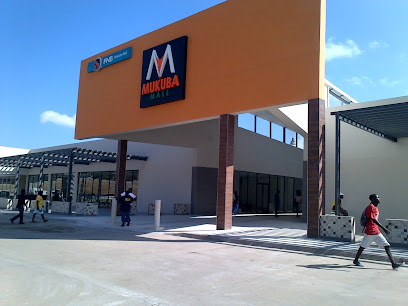
Chisokone Market
Explore the vibrant Chisokone Market in Kitwe, a cultural hub where local flavors, crafts, and community come alive in Zambia.
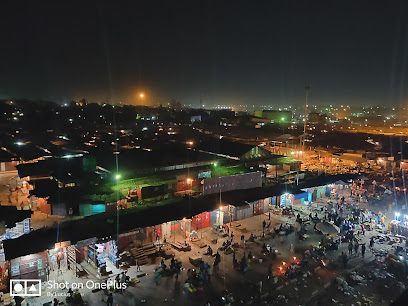
Garden Court Kitwe
Experience the best of Kitwe at Garden Court Kitwe, where comfort meets convenience in the heart of Zambia's vibrant city.
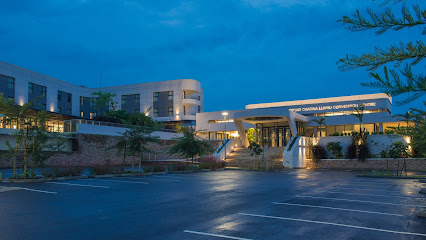
Pick n Save Copper Hill Mall
Explore the vibrant Pick n Save Copper Hill Mall in Kitwe, your one-stop shop for groceries, local crafts, and a taste of Zambian culture.
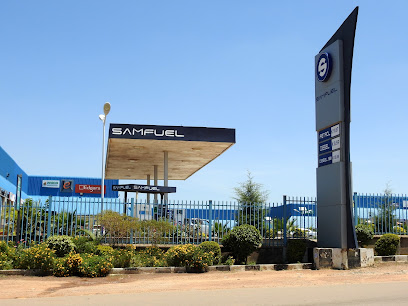
Copper Eagle Spur
Experience the rich flavors of African cuisine at Copper Eagle Spur, a family-friendly restaurant in Kitwe, renowned for its steaks and barbecue dishes.
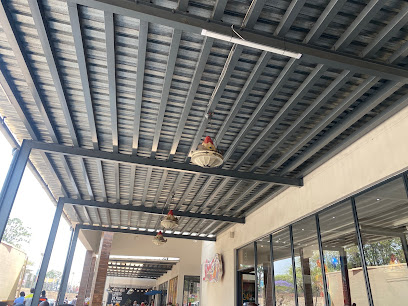
The Hut Restaurant - Kitwe
Experience authentic Zambian flavors and warm hospitality at The Hut Restaurant in Kitwe, offering a diverse menu in a charming setting.
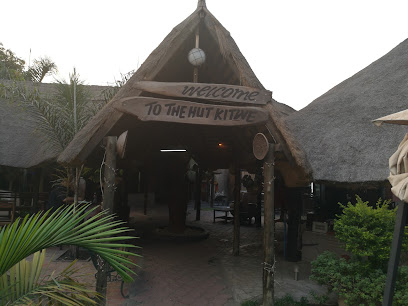
Mukwa Lodge & Restaurant
Discover Mukwa Lodge & Restaurant in Kitwe, a blend of Zambian hospitality and culinary delights in a cozy, inviting atmosphere.
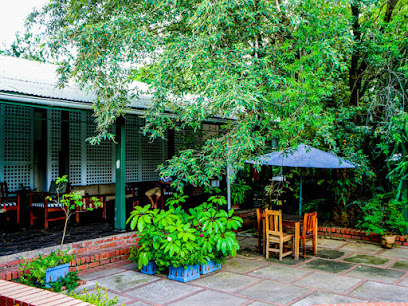
The Basket
Experience the vibrant nightlife of Kitwe at The Basket, a lively bar offering refreshing drinks, live music, and a friendly atmosphere.
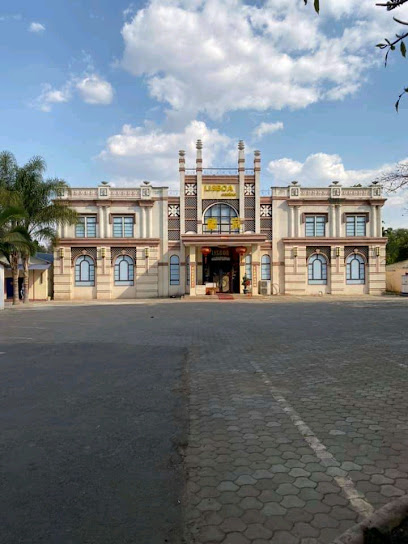
Honeydew Kitwe
Savor the vibrant flavors of Zambia at Honeydew Kitwe, where delightful cuisine meets warm hospitality in a cozy setting.
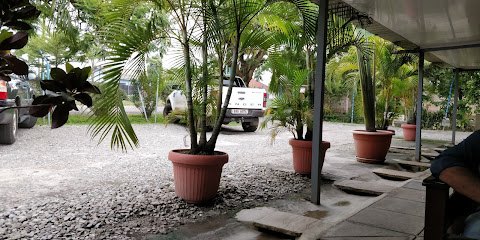
Nobutula Lodge
Experience comfort and tranquility at Nobutula Lodge, the perfect hotel for exploring the beauty of Kitwe, Zambia.
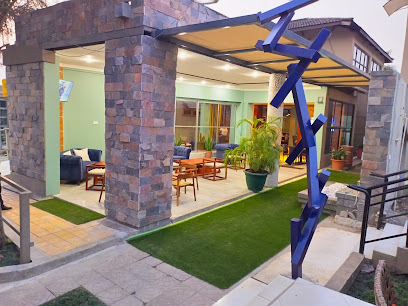
Hungry Lion Kitwe
Discover the taste of Zambia at Hungry Lion Kitwe, where fried chicken and local flavors unite in a vibrant fast-food experience.
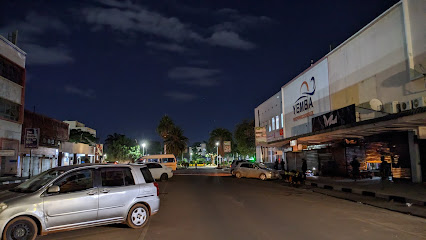
Moba Hotel & Convention Centre
Experience Zambian hospitality at Moba Hotel & Convention Centre, your perfect base for exploring Kitwe's vibrant culture and attractions.

Unique Park Lodge and Events
Discover the serene beauty of Unique Park Lodge, a premier resort hotel in Kitwe offering comfort, nature, and memorable events.
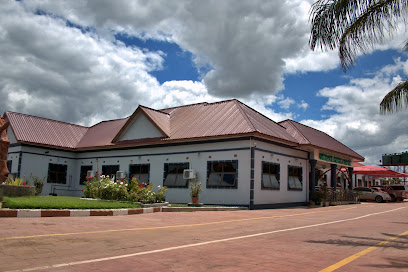
Mist Gardens
Discover the enchanting Mist Gardens in Kitwe, where nature meets tranquility and perfect venues for memorable events await.
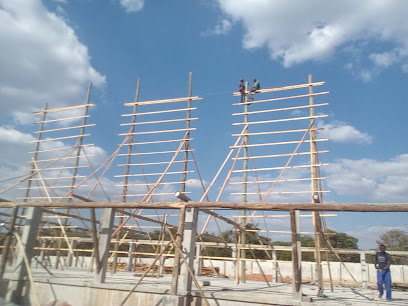
Lunte Lodge
Experience the serene charm of Lunte Lodge, your gateway to Kitwe's rich culture and stunning landscapes in Zambia.

Unmissable attractions to see
Copperbelt Museum
Explore the Copperbelt Museum in Ndola for an insightful journey into Zambia's mining history and cultural heritage.
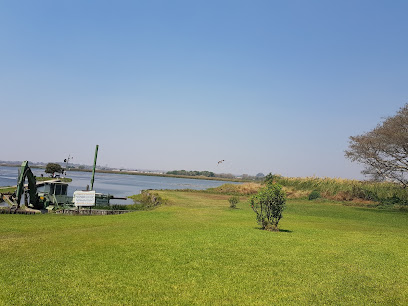
Kitwe Tailing Dam
Experience the serene beauty of Kitwe Tailing Dam, a peaceful retreat for nature lovers amidst Zambia's stunning landscapes.
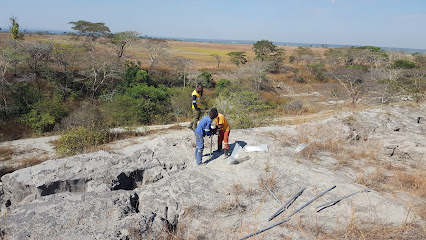
Mindolo Boat Cruise (MUZ) Kitwe
Discover the serene beauty of Mindolo Boat Cruise in Kitwe, Zambia – a unique escape into nature's tranquility on tranquil waters.
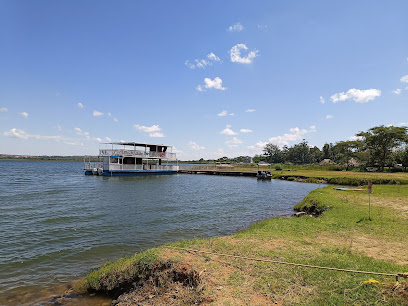
Kaunda Square
Explore Kaunda Square in Kitwe, Zambia - a serene park offering lush greenery, peaceful walks, and a glimpse into local life.
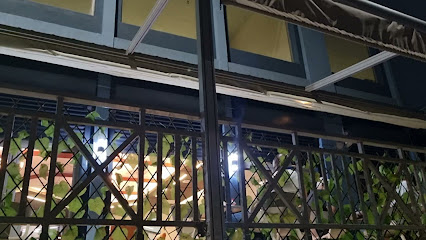
Serenity creations garden, events and decor
Explore the lush beauty of Serenity Creations Garden in Kitwe, a peaceful retreat adorned with vibrant flowers and tranquil pathways for nature lovers.
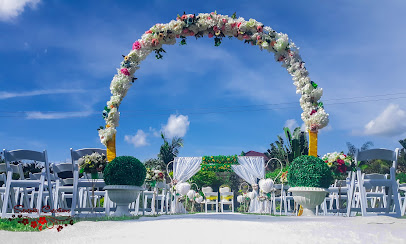
Chimposa Mabwe
Discover the rich history and cultural essence of Zambia at Chimposa Mabwe, a captivating historical landmark in Kitwe.
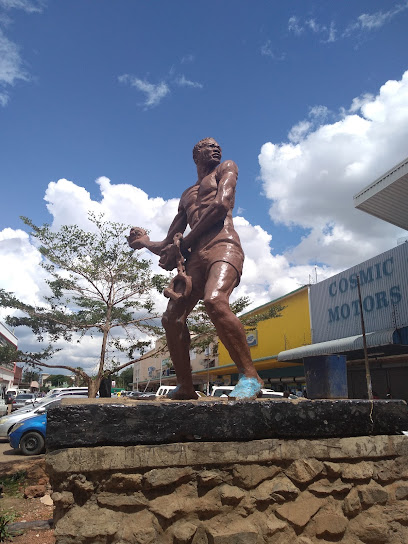
The CBU Nature Park
Discover tranquility at CBU Nature Park in Kitwe, a nature preserve that captivates visitors with its lush scenery and diverse wildlife.
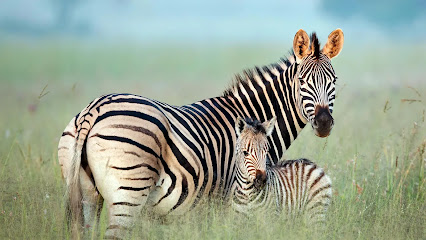
Casablanca Gardens Kitwe
Explore the serene beauty of Casablanca Gardens in Kitwe, a perfect retreat for nature lovers and families seeking a peaceful escape.
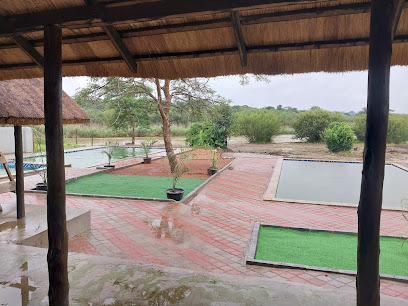
Ngoma Lake
Discover the tranquil beauty of Ngoma Lake in Kitwe, a serene park perfect for relaxation, family outings, and nature exploration.
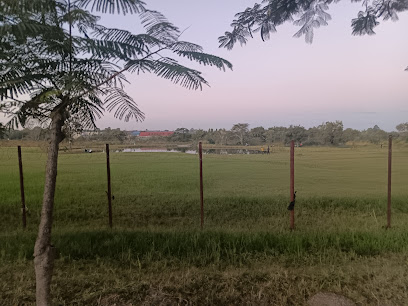
Nkana Canyon
Discover the breathtaking Nkana Canyon in Kitwe, Zambia, where adventure meets tranquility in a stunning natural landscape.
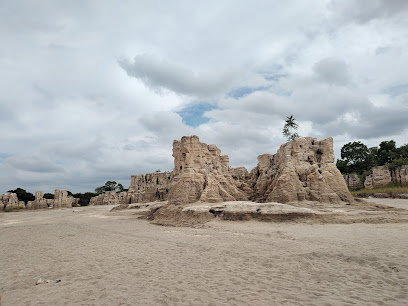
Heaven's Dew gardens
Discover the breathtaking beauty of Heaven's Dew Gardens, a serene retreat in Kitwe, Zambia, where nature flourishes and tranquility reigns.

Aqua Park
Discover Aqua Park in Kitwe, Zambia - a captivating water park featuring thrilling rides, lush gardens, and family-friendly fun for all ages.

Valerie's Game Ranch
Experience the wild beauty of Zambia at Valerie's Game Ranch, a nature preserve where adventure and conservation come together.
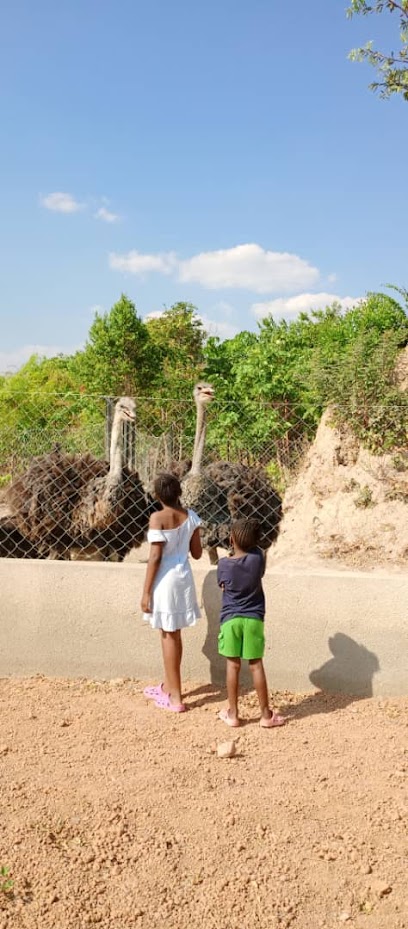
Paramindi park
Experience tranquility at Paramindi Park in Kitwe, a serene oasis with lush greenery, perfect for relaxation and community gatherings.

Spur, restaurant et galerie
Experience a fusion of exquisite cuisine and captivating local art at Spur, Kitwe's premier restaurant and gallery.

Essential places to dine
After Ten
Experience exceptional Zambian cuisine at After Ten in Kitwe, where delightful flavors meet outstanding service.
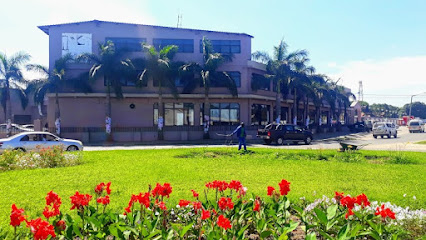
Nando's Kitwe
Experience authentic South African cuisine at Nando's Kitwe – home of flame-grilled peri-peri chicken and vibrant family dining.
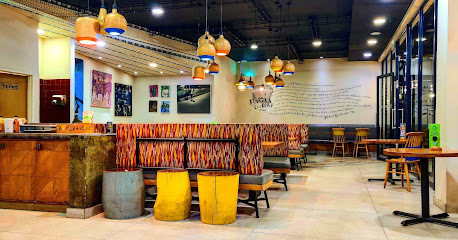
Copper Eagle Spur
Discover delightful African and international dishes at Copper Eagle Spur in Mukuba Mall – where flavor meets family-friendly fun!
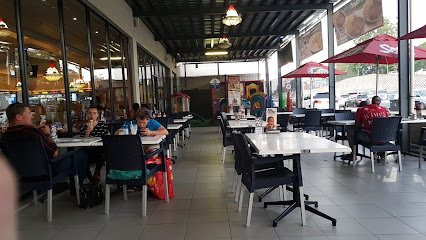
Keg & Coppersmith
Experience the perfect blend of local flavors and vibrant nightlife at Keg & Coppersmith in Kitwe's Mukuba Mall.
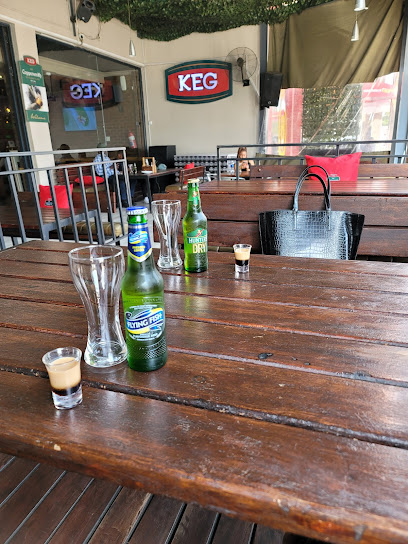
The Hut Restaurant - Kitwe
Discover authentic Zambian cuisine at The Hut Restaurant in Kitwe - a perfect blend of local flavors and warm hospitality.
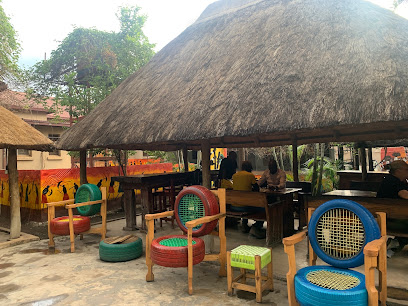
Mukwa Lodge & Restaurant
Discover the perfect blend of comfort and flavor at Mukwa Lodge & Restaurant in Kitwe - your ideal dining destination.
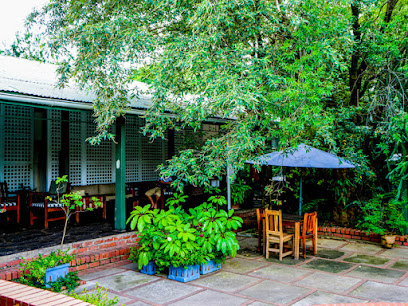
LEO’S PUB AND GRILL RESTAURANT
Experience authentic Zambian cuisine at Leo's Pub and Grill in Kitwe - a lively restaurant offering delicious food in a vibrant atmosphere.
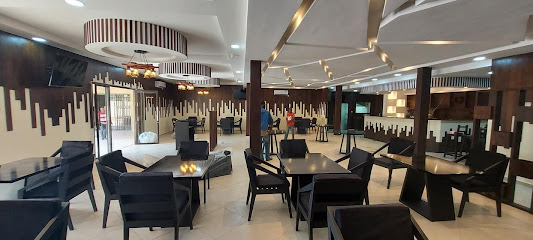
Honeydew Kitwe
Experience culinary excellence at Honeydew Kitwe - where local flavors meet international cuisine in a welcoming atmosphere.
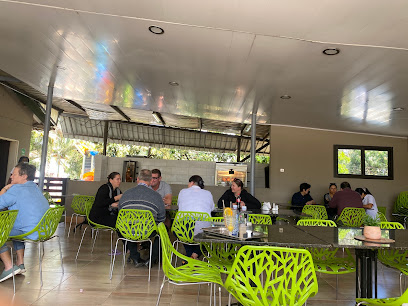
Hungry Lion Kitwe
Experience the irresistible taste of fried chicken at Hungry Lion Kitwe - a beloved fast-food haven in Zambia's vibrant town center.
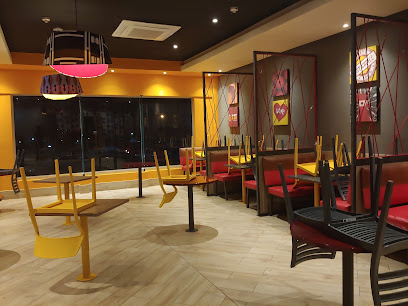
INDISH FUSION FOODS & COCKTAILS
Experience the perfect blend of local Zambian flavors and international cuisine at Indish Fusion Foods & Cocktails in Kitwe.
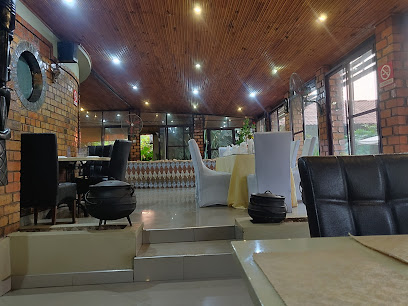
ATITHI MULTICUISINE GARDEN RESTAURANT & BAR
Experience diverse global cuisines in a serene garden setting at Atithi Multicuisine Garden Restaurant & Bar in Kitwe.
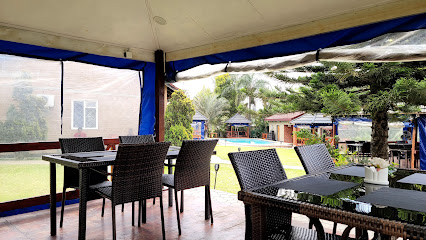
Dinner Bell Restaurant & BAR
Indulge in exquisite Indian flavors at Dinner Bell Restaurant & BAR in Kitwe – a culinary delight combining tradition with local charm.
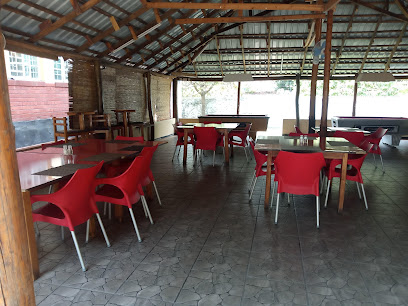
HavMore Restaurant & Bar
Discover the vibrant flavors of Zambia at HavMore Restaurant & Bar in Kitwe – where culinary delights meet a warm atmosphere.
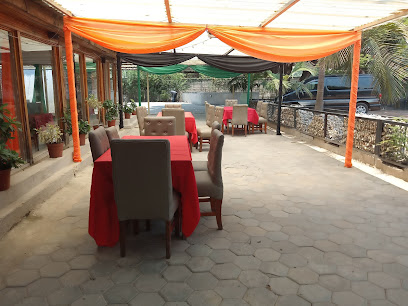
The x place
Discover the best grilled dishes at The X Place in Kitwe – where flavor meets tradition in every bite.
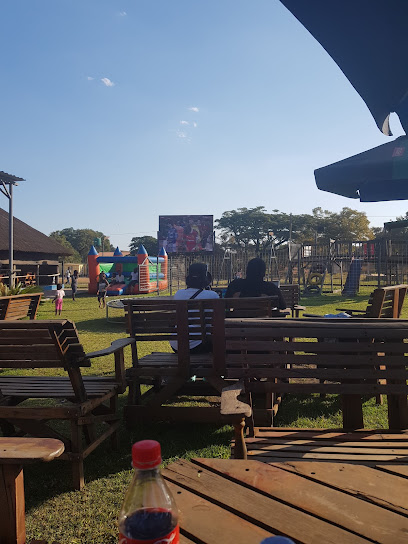
Fountain Restaurant
Experience authentic Zambian flavors at Fountain Restaurant in Kitwe - where local ingredients meet culinary creativity.
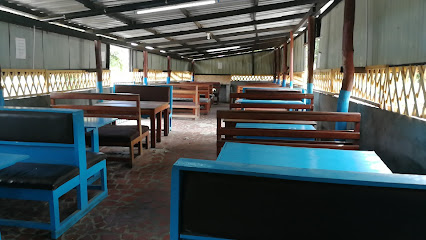
Markets, malls and hidden boutiques
Mukuba Shopping Mall
Discover the vibrant shopping experience at Mukuba Shopping Mall, where retail therapy meets delicious dining in the heart of Kitwe.
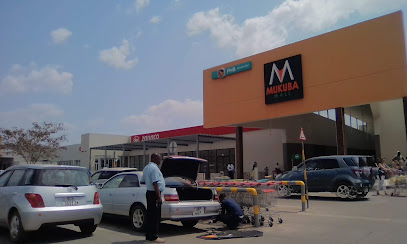
Shoprite Kitwe
Explore the vibrant aisles of Shoprite Kitwe, where local flavors meet everyday essentials in a lively supermarket setting.
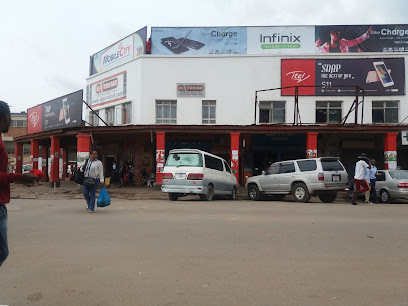
ECL Mall
Discover a vibrant shopping haven at ECL Mall in Kitwe, where local culture meets international flair in a perfect blend of retail and entertainment.
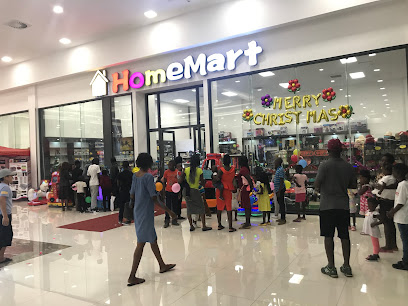
China Mall
Experience the vibrant shopping culture at China Mall in Kitwe, where diverse goods meet local charm and community spirit.
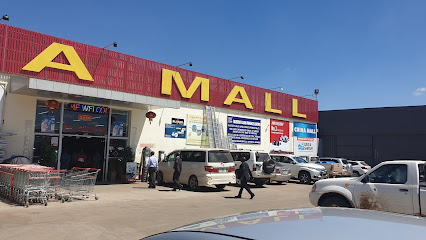
Pick n Save Copper Hill Mall
Explore local and international products at Pick n Save in Copper Hill Mall, Kitwe - a shopping experience rich in variety and culture.
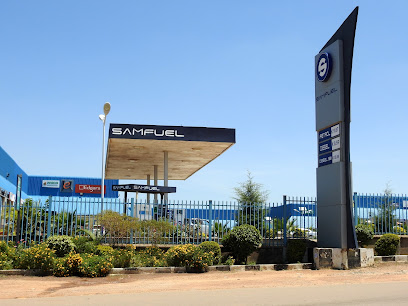
Game Kitwe
Experience a diverse range of products at Game Kitwe, your ultimate shopping destination in Mukuba Mall, Kitwe.
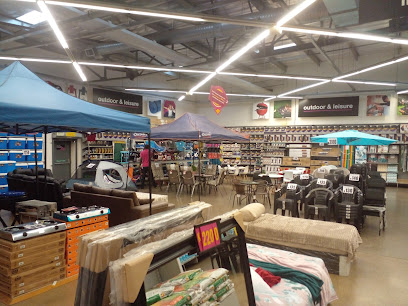
Choppies Hyper Store - Kitwe
Discover local flavors and essential goods at Choppies Hyper Store in Kitwe; your go-to grocery destination for an authentic Zambian shopping experience.
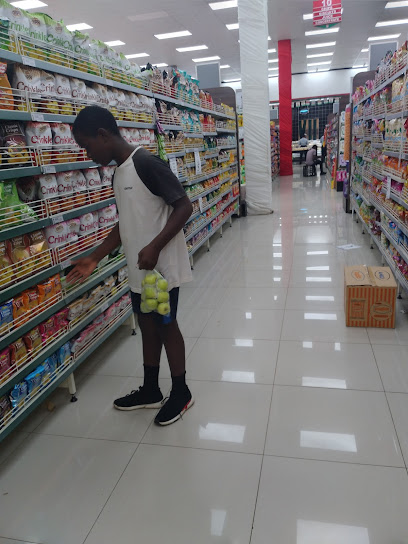
Z-MART Stores · Kitwe
Discover Z-MART Stores in Kitwe, your ultimate shopping destination for home goods and local products, blending convenience and cultural experience.
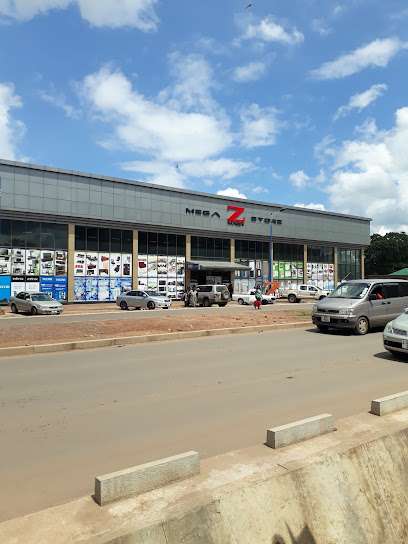
Pick N Pay
Explore the diverse offerings at Pick N Pay in Kitwe, the ultimate grocery destination for tourists seeking local and international products.
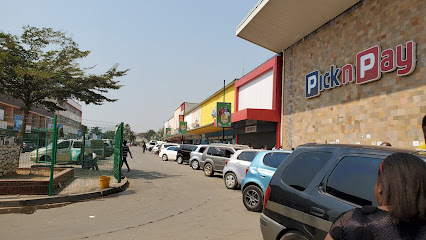
Premuni
Discover a world of health foods, spices, and Indian groceries at Premuni Supermarket in Kitwe, perfect for culinary adventurers.
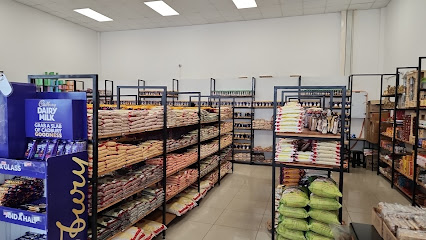
CENTER MART
Explore local flavors and global goods at Center Mart, Kitwe's vibrant supermarket offering a taste of Zambia's rich culture.
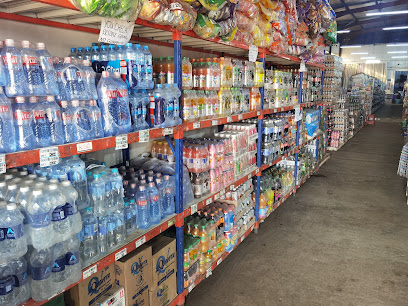
Bookworld Kitwe
Discover Zambia's literary treasures at Bookworld Kitwe, a must-visit bookstore for tourists and locals alike.
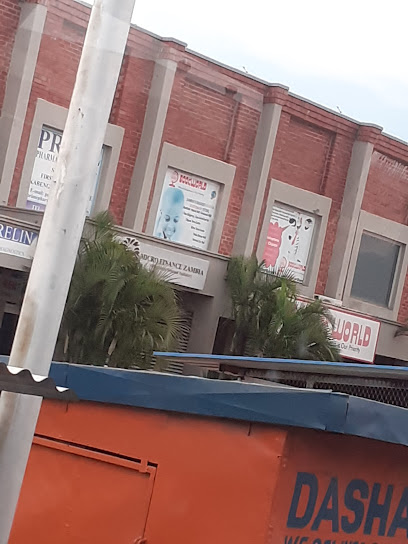
The Bottleshop Zambia (Kitwe Store)
Explore a world of flavors at The Bottleshop Zambia in Kitwe, your go-to destination for local and international beers.
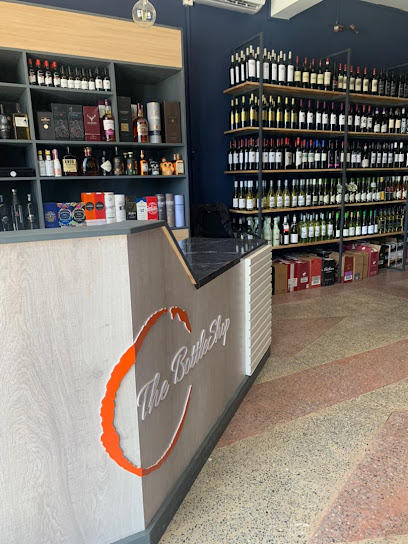
Orca World Class Furniture & Decor
Explore Orca World Class Furniture & Decor in Kitwe for exquisite home furnishings, blending local craftsmanship with modern elegance.
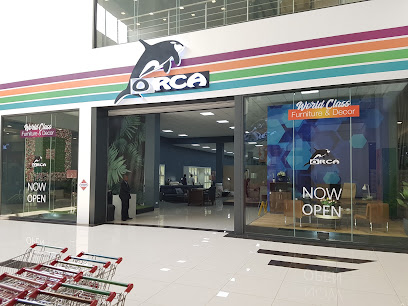
Young Phiroz Kitwe store shop 2
Explore the vibrant local culture at Young Phiroz Kitwe Store, your gateway to authentic Zambian products and souvenirs.
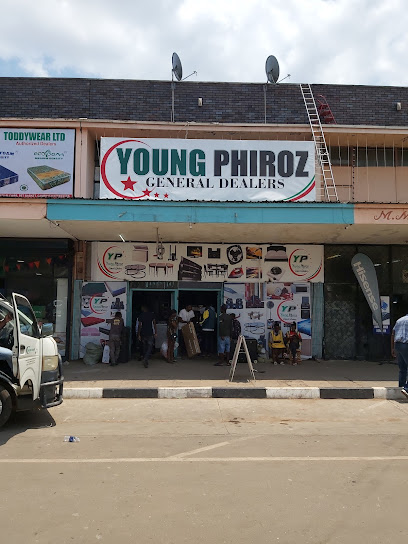
Essential bars & hidden hideouts
The Basket
Experience the vibrant nightlife of Kitwe at The Basket, where lively ambiance meets a diverse selection of drinks.
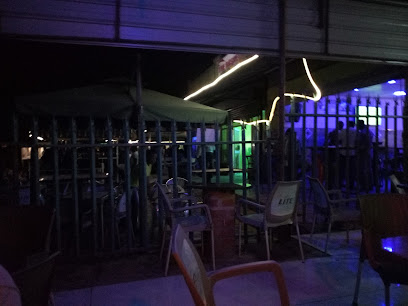
37 Degrees Pub & Grill
Discover the lively spirit of Kitwe at 37 Degrees Pub & Grill, where local flavors and friendly vibes come together for an unforgettable experience.
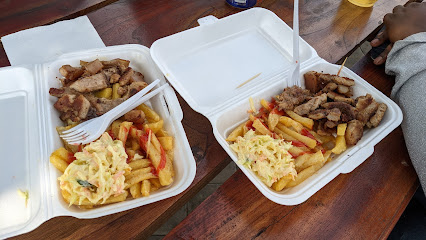
Corner Bar
Discover the cozy ambiance and refreshing drinks at Corner Bar in Kitwe, your ideal retreat for relaxation and socializing.
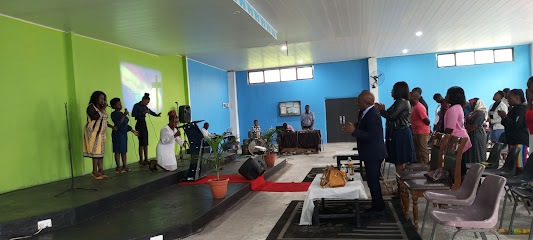
Apex pub
Discover the lively atmosphere of Apex Pub in Kitwe, Zambia, a perfect spot for enjoying local beverages and vibrant social interactions.
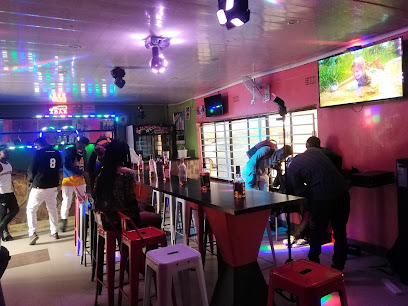
O'clans Gathering Pub & Grill
Discover the lively spirit of Zambian hospitality at O'clans Gathering Pub & Grill in Kitwe, where great food meets a friendly atmosphere.
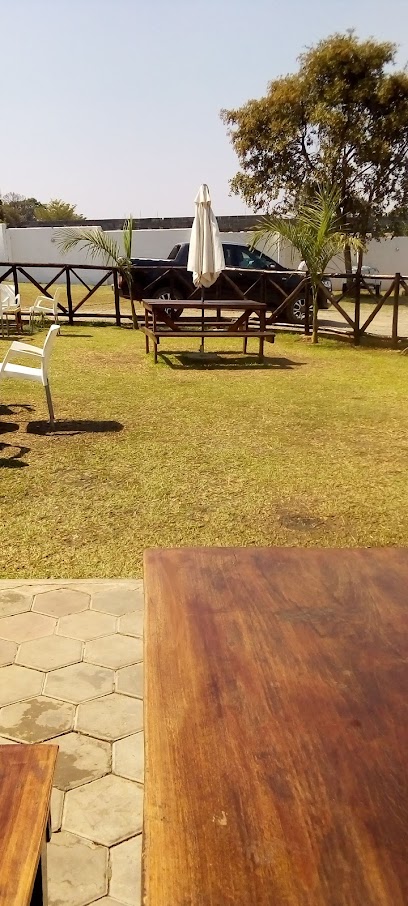
Archie’s Pub &Grill
Savor the flavors of Kitwe at Archie’s Pub & Grill, where delicious grilled dishes meet a vibrant atmosphere for an unforgettable dining experience.
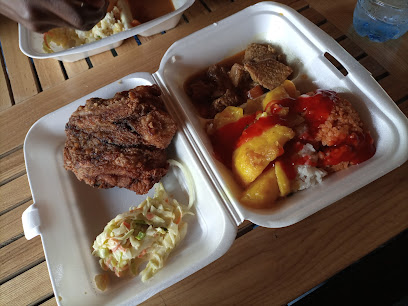
The Pitch Pub & Grill
Experience the lively atmosphere at The Pitch Pub & Grill in Kitwe, where great food, drinks, and vibrant entertainment await.
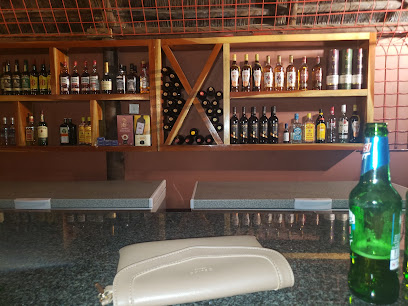
Cassylicious Pub & Grill Kitwe
Experience the vibrant atmosphere and delicious flavors at Cassylicious Pub & Grill in Kitwe, a must-visit bar for an authentic Zambian nightlife experience.
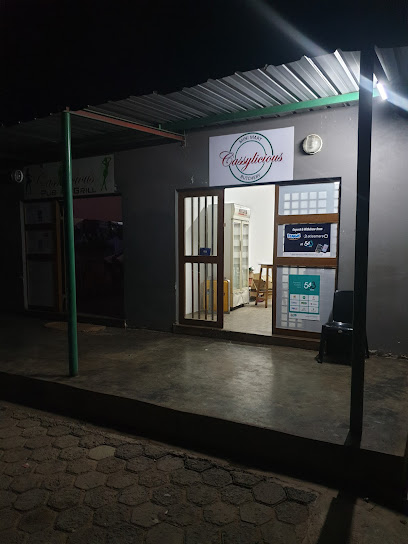
Zorgi's Pub & Grill
Experience the vibrant local culture at Zorgi's Pub & Grill in Kitwe, where delicious food meets a lively atmosphere.
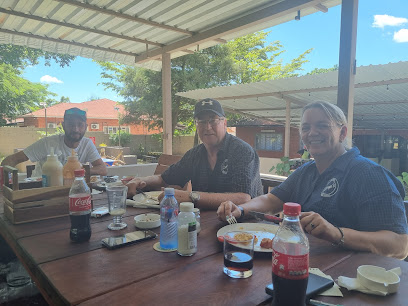
Lisboa casino
Discover the lively atmosphere of Lisboa Casino in Kitwe, where gaming and nightlife blend for an unforgettable experience.
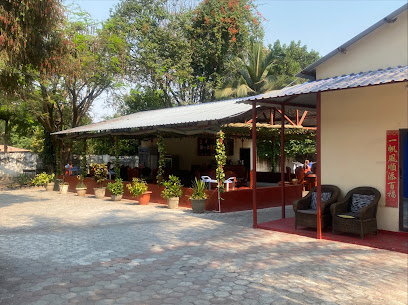
Zulu Corner
Discover Zulu Corner in Kitwe: a lively bar offering a taste of local culture and a vibrant atmosphere for all travelers.

Marjan Pub & Grill
Discover Marjan Pub & Grill, the vibrant bar in Kitwe offering delicious food, refreshing drinks, and a friendly atmosphere for all visitors.
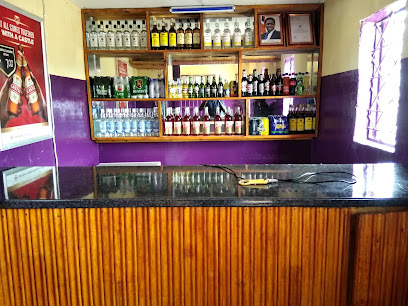
Diamond pub and grill
Discover the lively ambiance of Diamond Pub and Grill in Kitwe, where local flavors and vibrant nightlife meet.
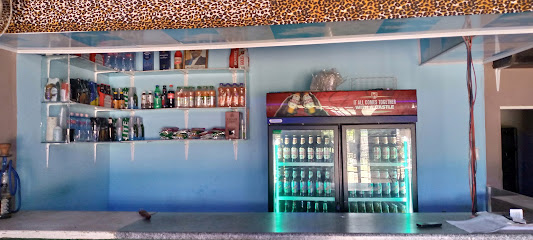
THE ESCAPE PUB & GRILL
Discover a vibrant culinary scene at The Escape Pub & Grill in Kitwe, where delicious grilled dishes and a welcoming atmosphere await every visitor.
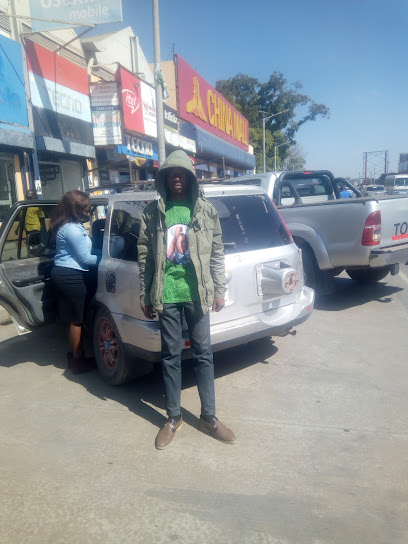
Local Phrases
-
- HelloMuli bwanji
[moo-lee bwan-jee] - GoodbyeBwino bwino
[bwee-no bwee-no] - YesEe
[ay] - NoAyi
[eye] - Please/You're welcomeTafadhali
[ta-fa-da-lee] - Thank youZikomo
[zee-koh-moh] - Excuse me/SorryPepani
[peh-pah-nee] - How are you?Muli shani?
[moo-lee sha-nee] - Fine. And you?Yambani. Naimwe?
[yam-bah-nee. ny-ee-mweh] - Do you speak English?Mukutanthauza chizungu?
[moo-koo-tan-thow-zah chee-zoon-goo] - I don't understandSindiwafuna
[sin-dee-wah-foo-nah]
- HelloMuli bwanji
-
- I'd like to see the menu, pleaseNdikufuna kuyang'anira menu, chonde
[n-dee-koo-foo-nah koo-yang-ahn-ee-rah meh-noo, chohn-deh] - I don't eat meatSindidya nyama
[sin-dee-jah nyah-mah] - Cheers!Mwaiseni!
[m-wai-seh-nee] - I would like to pay, pleaseNdikufuna kuyendetsa, chonde
[n-dee-koo-foo-nah koo-yen-deh-tsa, chohn-deh]
- I'd like to see the menu, pleaseNdikufuna kuyang'anira menu, chonde
-
- Help!Mulonga!
[moo-lon-gah] - Go away!Peza!
[peh-zah] - Call the Police!Kaleka Polisi!
[kah-leh-kah poh-lee-see] - Call a doctor!Kaleka daktala!
[kah-leh-kah dahk-tah-lah] - I'm lostNdimasowa
[n-dee-mah-soh-wah] - I'm illNdimakudwala
[n-dee-mah-koo-dwah-lah]
- Help!Mulonga!
-
- I'd like to buy...Ndikufuna kudzamira...
[n-dee-koo-foo-nah koo-dzah-mee-rah] - I'm just lookingNdimafuna kusonkhana
[n-dee-mah-foo-nah koo-sohn-kah-nah] - How much is it?Chingati ichi?
[cheen-gah-tee ee-chee] - That's too expensiveIchi ndi chachikulu kwambiri
[ee-chee n-dee cha-chee-koo-loo kwaam-bee-ree] - Can you lower the price?Mukufuna kuponyera
[moo-koo-foo-nah koo-poh-nyeh-rah]
- I'd like to buy...Ndikufuna kudzamira...
-
- What time is it?Izi ndi nthawi yanji?
[ee-zee n-dee n-tah-wee yahn-jee] - It's one o'clockNdi nthawi yamodzi
[n-dee n-tah-wee yah-moh-dzee] - Half past (10)Mawa pa (kumi)
[mah-wah pah (koo-mee)] - MorningUsiku
[oo-see-koo] - AfternoonMawa
[mah-wah] - EveningM'mawa
[m-mah-wah] - YesterdayNakale
[nah-kah-leh] - TodayLero
[leh-ro] - TomorrowMawa
[mah-wah] - 1Moja
[moh-jah] - 2Zawiri
[zah-wee-ree] - 3Tatu
[tah-too] - 4Nawa
[nah-wah] - 5Sanu
[sah-noo] - 6Ndanu
[ndah-noo] - 7Nsanu
[nsah-noo] - 8Nyanu
[nyah-noo] - 9Tisanu
[tee-sah-noo] - 10Kumi
[koo-mee]
- What time is it?Izi ndi nthawi yanji?
-
- Where's a/the...?Kuli...?
[koo-lee] - What's the address?Adzindikileko bwanji?
[ah-dzee-nee-kee-leh-koh bwan-jee] - Can you show me (on the map)?Mukufuna kundikweze (pa mapi)?
[moo-koo-foo-nah koon-dee-kweh-zeh pah mah-pee] - When's the next (bus)?Mwachita nthawi yanji?
[m-wah-chee-tah n-tah-wee yahn-jee] - A ticket (to ....)Chithandizo (kutali...)
[chee-than-dee-zoh koo-tah-lee]
- Where's a/the...?Kuli...?
History of Kitwe
-
Kitwe, one of Zambia's major cities, was founded in 1936 as a key mining town in the Copperbelt Province. Initially established to support the burgeoning copper mining industry, Kitwe quickly grew from a small settlement to a bustling urban center. The discovery of substantial copper deposits in the region attracted miners, engineers, and entrepreneurs from around the world, setting the stage for rapid development and industrialization.
-
One of the pivotal events in Kitwe's history was the Copperbelt Strike of 1935. During this period, African mine workers protested against poor wages and harsh working conditions imposed by colonial mining companies. The strike was a significant moment in the history of labor movements in Zambia and highlighted the growing discontent among African workers under colonial rule. Although the strike was suppressed, it set the stage for future labor activism and was a precursor to Zambia's eventual independence.
-
After World War II, Kitwe experienced significant growth and modernization. The post-war economic boom led to increased investment in the Copperbelt, and Kitwe benefited from improved infrastructure, including roads, schools, and healthcare facilities. This period also saw the establishment of several key institutions, such as the Kitwe City Council in 1948, which played a crucial role in the city's governance and urban planning.
-
Zambia gained independence from British colonial rule on October 24, 1964. Following independence, the new Zambian government, led by President Kenneth Kaunda, embarked on a policy of nationalization. In 1969, the government nationalized the copper mines, including those in Kitwe, creating the state-owned entity Zambia Consolidated Copper Mines (ZCCM). This move aimed to ensure that the profits from the copper industry would benefit the Zambian people and contribute to national development.
-
The late 20th century brought economic challenges to Kitwe and the Copperbelt region as global copper prices fluctuated. The decline in copper prices during the 1980s and 1990s had a significant impact on the local economy, leading to job losses and reduced government revenues. Despite these challenges, Kitwe has demonstrated resilience, diversifying its economy to include agriculture, manufacturing, and services alongside mining.
-
Today, Kitwe is a vibrant city that reflects a rich cultural heritage and a dynamic modern identity. The city is home to several cultural landmarks, including the Mukuba Mall, which showcases local crafts and cuisine, and the Mindolo Dam, a popular recreational spot. Kitwe's diverse population contributes to a lively cultural scene, with various festivals, music, and dance performances celebrating the city's unique blend of traditions and contemporary influences. The Copperbelt University, located in Kitwe, is a key educational institution that attracts students from across the region and plays a significant role in the city's intellectual and cultural life.
Kitwe Essentials
-
Kitwe is located in the Copperbelt Province of Zambia. The nearest international airport is Simon Mwansa Kapwepwe International Airport in Ndola, which is approximately 60 kilometers away. From Ndola, you can take a taxi or a bus to Kitwe. The journey takes around an hour by road. Alternatively, you can take a train from Lusaka, the capital city of Zambia, to Kitwe, which provides a scenic route through the Zambian countryside.
-
Kitwe has a variety of transportation options. Local minibuses are the most common form of public transport within the city and are relatively inexpensive. Taxis are also readily available and can be hailed on the street or booked via phone. For more flexibility, car rentals are available, though driving can be challenging due to varying road conditions. Bicycles are another option for getting around if you prefer a more eco-friendly mode of transport.
-
The official currency in Zambia is the Zambian Kwacha (ZMW). Credit and debit cards are accepted in most hotels, restaurants, and larger shops, but it is advisable to carry cash for smaller establishments and markets. ATMs are plentiful in Kitwe, but it's wise to withdraw sufficient cash in advance when traveling to more remote areas.
-
Kitwe is generally safe for tourists, but like any urban area, it is important to stay vigilant. Areas such as Chimwemwe and Wusakile have higher crime rates, particularly at night. Avoid walking alone after dark and keep your belongings secure. Be cautious when using ATMs and prefer those located in busy, well-lit areas.
-
In case of emergency, dial 999 for immediate assistance. Kitwe Central Hospital is the main medical facility in the city and provides emergency services. Pharmacies are available for minor health issues. It is highly recommended to have travel insurance that covers medical emergencies. For police assistance, visit the nearest police station or contact them through the emergency number.
-
Fashion: Do dress modestly, as conservative attire is appreciated. Avoid wearing overly revealing clothing. Religion: Do respect local customs and traditions. When visiting religious sites, dress modestly and remove your shoes if required. Public Transport: Do be respectful to fellow passengers. Don’t be loud or disruptive. Greetings: Do greet people with a handshake and a friendly smile. Eating & Drinking: Do try local dishes and accept food offerings graciously. Don’t refuse hospitality, as it is considered impolite.
-
To experience Kitwe like a local, visit the Chisokone Market where you can buy fresh produce and local crafts. Engage with locals, as they are often friendly and willing to share stories about the city's history and culture. Don't miss visiting the Mindolo Dam for a relaxing day out or the Kitwe Playing Fields for various sporting activities. For a unique experience, take a walk through the Nkana Copper Mine area to understand the city's mining heritage.
Trending Landmark in Kitwe
Nearby Cities to Kitwe
-
Things To Do in Ndola
-
Things To Do in Kabwe
-
Things To Do in Solwezi
-
Things To Do in Lusaka
-
Things To Do in Kariba
-
Things To Do in Kasama
-
Things To Do in Chipata
-
Things To Do in Chinhoyi
-
Things To Do in Lilongwe
-
Things To Do in Livingstone
-
Things To Do in Victoria Falls
-
Things To Do in Harare
-
Things To Do in Hwange
-
Things To Do in Kasane
-
Things To Do in Mzuzu




